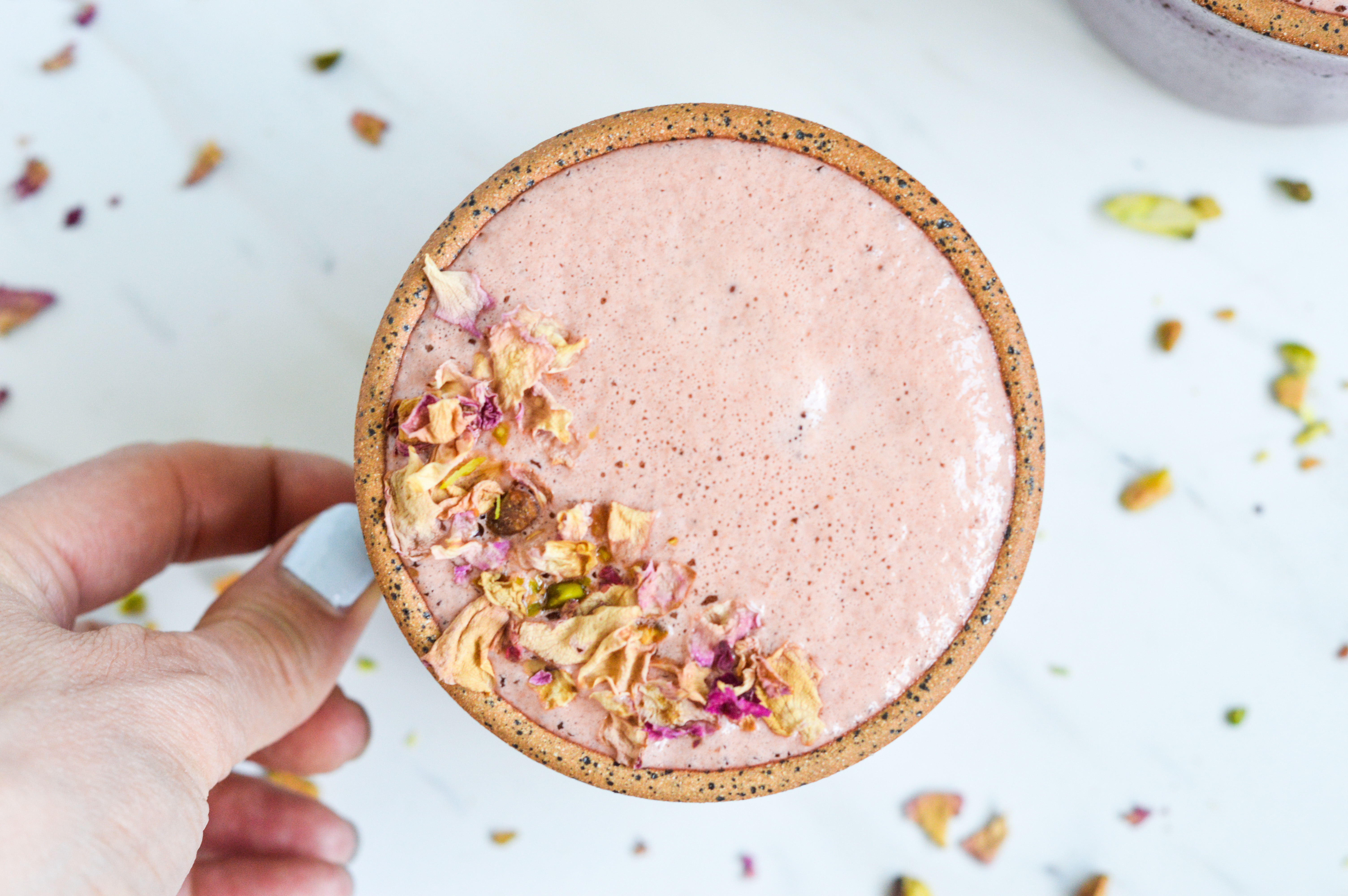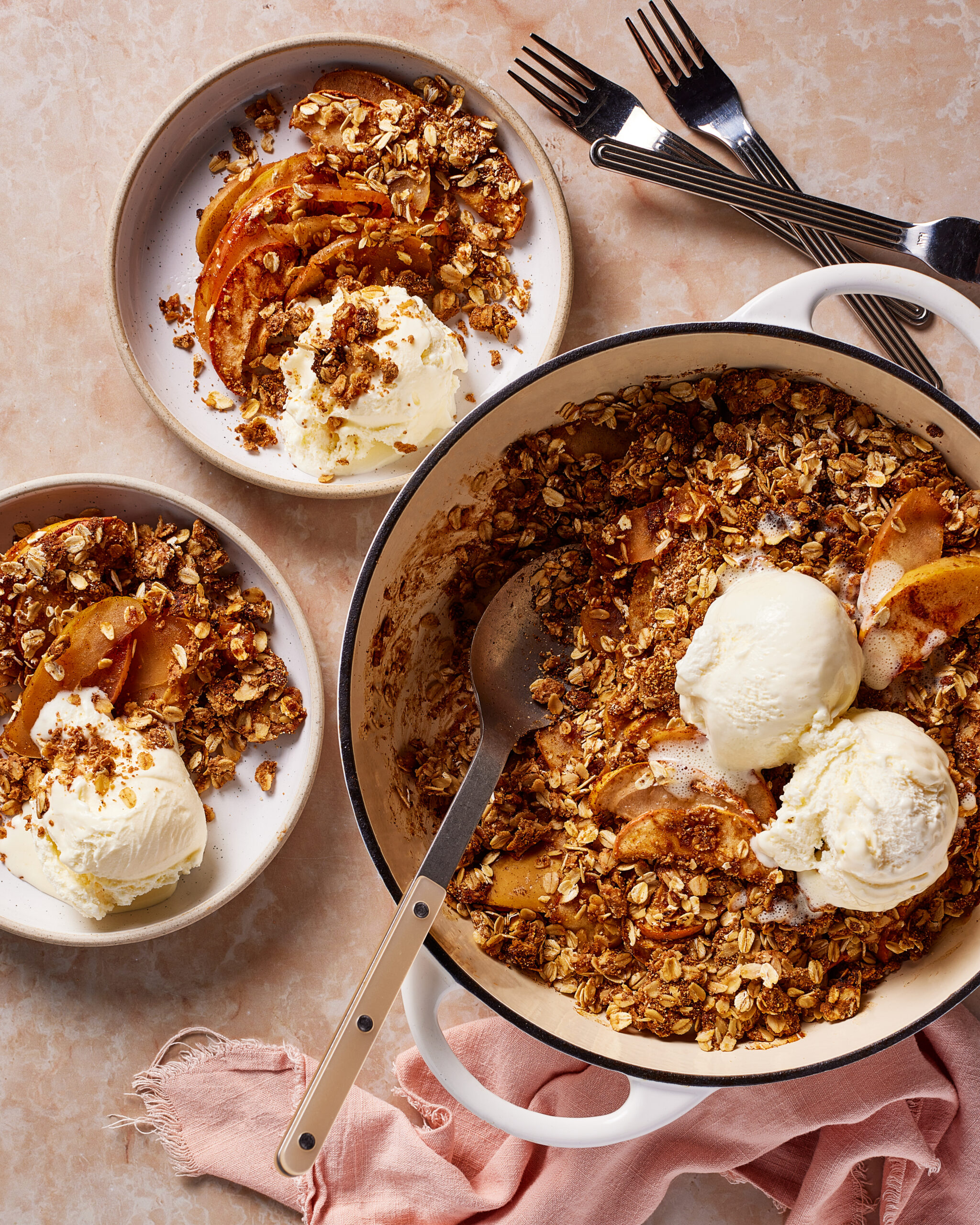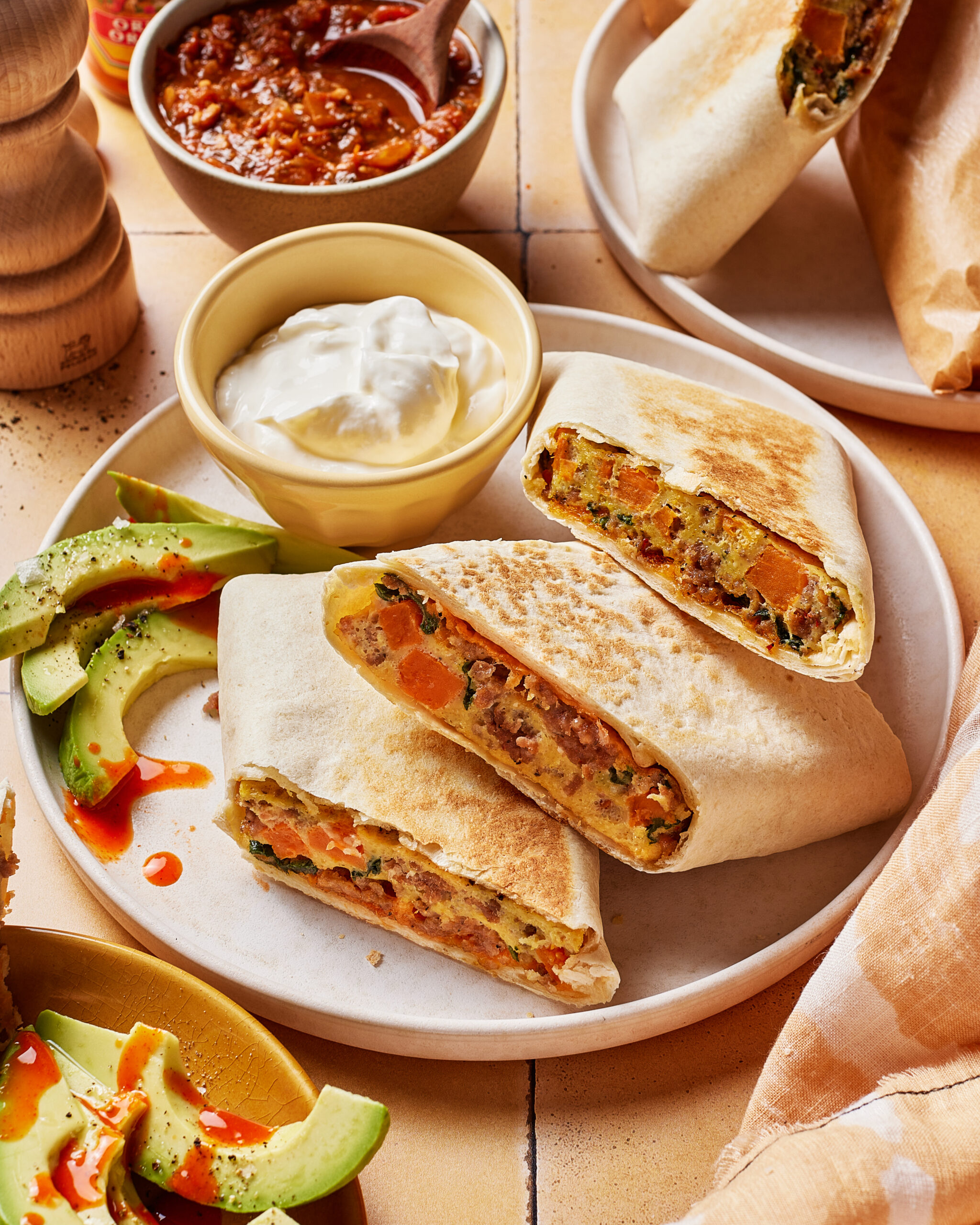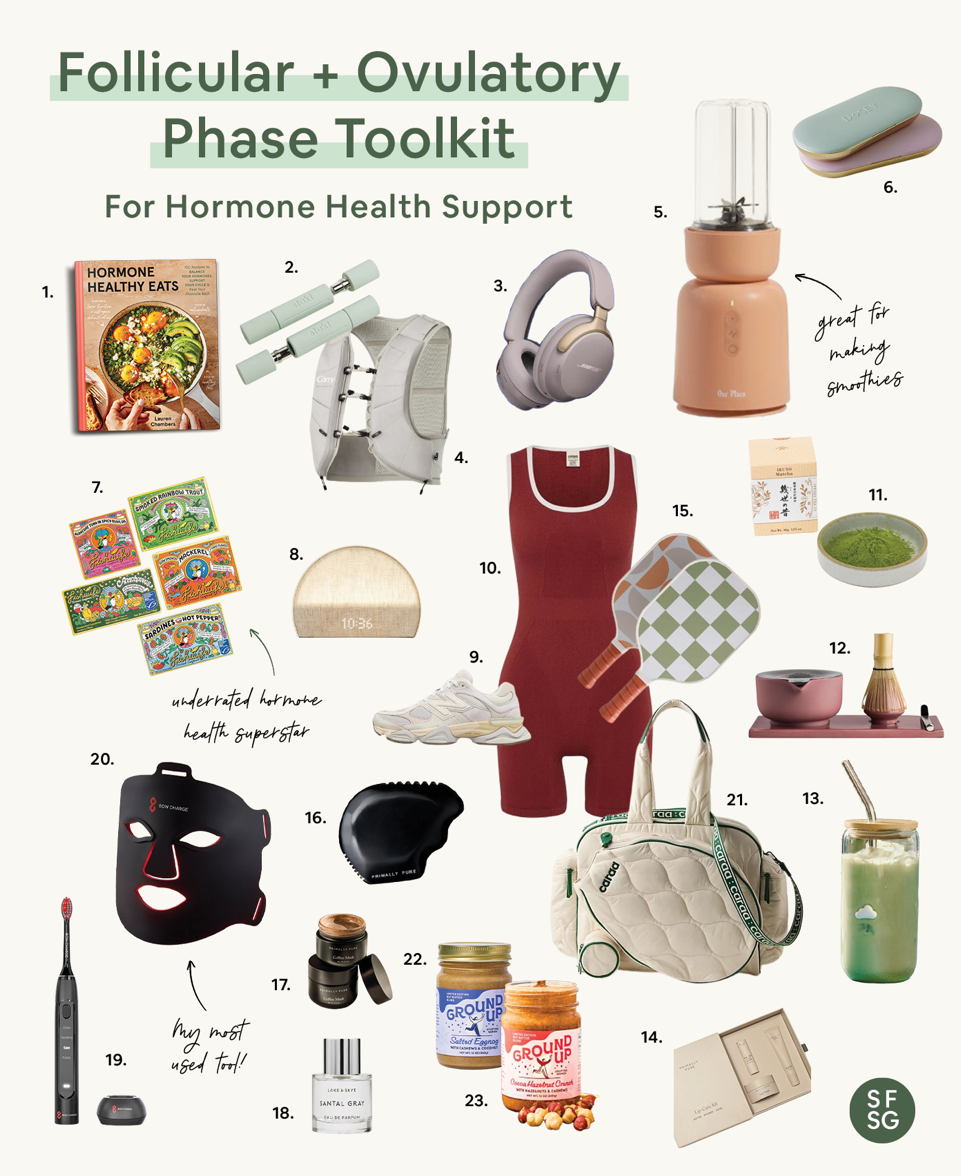recipes
lifestyle
wellness
motherhood
mindset
About
E-Books
Blog
Freebies
partnerships
hi, i'm lauren!
hey there!
I’m on a hot mission to help you balance your hormones & live your best life.
categories
Home
Quiz
Get In Touch
The Course
search:
Cookbook
Recipe key
GF
VG
P
Vegan
Gluten Free
Paleo
DF
Dairy-Free
download now
Join Hormone Healthy Eats!
Become a SFNSG insider to get my monthly Substack, Hormone Healthy Eats! Packed with the latest hormone-healthy recipes
+ tips.
jump to recipe >
#MentalHealthAwarenessMonth is still going strong, so this week I’m sharing one of my favorite ways to influence mood…FOOD.
If you’ve read about my personal mental health journey, you know that food has played a huge role in keeping my mental health game optimal.
Read on for more info on how food plays an indisputable role in your mood, hormones, cognitive function and overall health, as well as my favorite mood boosting foods and recipes.
PRO-TIP: Taking a high quality probiotic is another great way to improve gut health + boost your mood. This brand is my go-to and you can use code SOFRESH15 to save $.
COMMON CAUSES OF MOOD DISORDERS
With anxiety disorders becoming the most common mental illness in the United States (affecting 40 million adults) and 1 in 10 adults in the US currently taking an anti-depressant, mental health is becoming a topic we can no longer ignore.
This steady rise in mental health and mood disorders is linked to chronic inflammation of the body and brain, which is often attributed to:
-
+ Processed Foods
-
+ Caffeine
-
+ Alcohol
-
+ Tobacco
-
+ OTC Medications
-
+ Drugs
-
+ Heavy Metals
-
+ Pesticides
-
+ Chemicals and other Toxins
Consistent exposure to these triggers overwhelms our body’s detoxification process, causing unhealthy metabolites to accumulate and ultimately spur mitochondrial dysfunction, metabolic deficiencies, immunotoxicity and neuroinflammation (also known as inflammation of the brain).
As a result, the body’s energy is diverted from other important processes and metabolically active organs such as the brain, the heart, and the muscles start to suffer. It is then we start to feel unwell and experience chronic fatigue, weakness, slow processing, anxiety, depression, inability to cope with stressors and other cognitive difficulties.
So how do we combat this?
Fixing your brain starts with fixing your body: optimizing all the inputs and taking out the bad influences. Luckily for us, the brain is resilient and can recover and heal when given the right support, primarily from the nutrients provided in the food you eat.
HOW FOOD AFFECTS YOUR MOOD
According to Dr. David Perlmutter, a neurologist recognized internationally as a leader in the field of neurological research and disorders, your food choices are the most influential variable you can control that relates to the health, vitality, and functionality of your precious brain.
In fact, the function and health of our brains are incredibly influenced by the state of health in our gut bacteria. This is know as the gut-brain axis (GBA), a two-way street of communication between the central nervous system (CNS) and the enteric nervous system (ENS) via the vagus nerve. The vagus nerve is lined with more than 100 million nerve cells that link the emotional and mental centers of the brain to our digestive system and intestinal functions, creating what we call the Gut-Brain Connection.
Emerging research continues to show us how the gut directly influences human physiology, metabolism, and immune function.
Thus nurturing our gut bacteria through food allows us to reap the benefits of a healthy microbiome, and that means reduced inflammation, balanced immunity, decreased anxiety, better moods and optimal brain function.
So what are these mood boosting foods and how do we make them easy and delicious to regularly consume so that our brains are actually benefiting? Let’s break it down.
TOP MOOD BOOSTING FOODS
+ HEALTHY FATS + PROTEN
60% of your brain is made up of fat, specifically DHA, an omega-3 fat that plays a pivotal role in maintaining the health and stimulating the growth of brain cells in the brain’s memory center.
It’s also made up of EPA, the secondary omega-3. Both of these fats are critical for supporting brain function and mood, regulating metabolism and preventing diabetes and inflammation.
Here are some of the best sources of mood boosting fats and proteins:
+ Wild Salmon
A terrific, low-mercury option rich in DHA linked to depression prevention.
+ Organic Avocado, Coconut & Olive Oil
These oils are rich in anti-inflammatory compounds that can help improve the gut microbiome composition , impacting the gut-brain axis and improve mental health.
+ Grass-Fed Butter/Ghee
Rich in butyric acid, a short chain fatty acid that promotes a healthy gut microbiome and shown to decrease anxiety.
+ Raw or Sprouted Nuts + Seeds
Where do I even begin? Truly an impactful option, nuts and seeds like pistachios, cashews, pumpkin seeds, almonds, walnuts, etc. are loaded with antioxidants that protects brain cells from damage, fiber that feeds your gut flora and vitamins that support feel-good neurotransmitters like serotonin, GABA and melatonin.
+ Pasture-Raised Eggs
Rich in choline, the precursor chemical for acetylcholine, a fundamental neurotransmitter. Eggs also contain cholesterol, a crucial component of brain cell membranes as well as serving the brain as a protective antioxidant.
+ Avocados
High in monounsaturated fats shown to protect brain cells.
MOOD BOOSTING RECIPES
- Teriyaki Glazed Salmon
- Pesto Sweet Potato Pizza
- Avocado Green Curry
- Superfood Guacamole
- Juicy Turkey Avocado Burger Bowls
- Turmeric Deviled Eggs
- Vegan Avocado Chocolate Mousse
- Dark Chocolate Seed Cycle Granola
- Gut-Friendly Sweet Potato Pesto Quinoa Bowl
- Egg Shakshuka, Glazed Ginger Miso Salmon + Mint Chocolate Chip Smoothie from the Hormone Balance Reset Plan
+ FIBER (FROM PLANTS)
These colorful superfoods are loaded with phytonutrients that contain powerful anti-inflammatory, detoxifying antioxidants and energy-boosting, brain-powering molecules. They’re also rich in fiber, which binds to toxins to keep them moving out of your body and feeds the good bacteria in your gut, which communicates directly with your brain via the vagus nerve, regulating anxiety, depression and other mood disorders.
Many of these plants also contain a specific type of fiber called prebiotic fiber, which feeds a group of bacteria that control the rate of gene expression in the brain, including the secretion of BDNF, a very important signal that increases neural connections, facilitates learning as well as short-term and long-term memory.
Here are some of the best sources of mood boosting plants:
+ Leafy Greens
Greens like spinach, kale, arugula, dandelion, swiss chard, etc. are rich in vitamin C, which plays an important role in brain and nerve cell development. Vitamin C also gets depleted when we’re stressed, so it’s even more important to add it in when we’re dealing with mental health challenges.
+ Blueberries + Dark Pigmented Berries
Wild, organic blueberries have one of the highest concentrations of brain-protecting and inflammation reducing antioxidants.
+ Beets
Beets contain betaine, which helps the brain form natural antidepressants such as serotonin, a chemical in the body that regulates our mood.
+ Asparagus
Rich in prebiotic fiber and nutrients like folate, which lowers inflammation in the brain (inflammation has been directly linked to anxiety and depression).
+ Cruciferous Veggies
Cruciferous veggies such as cauliflower, kale, brussels sprouts, broccoli, cabbage, bok choy, etc. contain sulforaphane, which has been found to produce anti-depressant and anti-anxiety chemicals in the body.
+ Fermented Foods
Fermented foods such as kimchee, miso, coconut yogurt, beet kvass, etc. are loaded with probiotics that help to repopulate the good microflora in your gut, directly affecting your anxiety and overall cognition.
MOOD BOOSTING RECIPES
- Red Velvet Latte (see recipe below)
- Summer Berry Oat Bake
- Farm Salad + Honey Lemon Vinaigrette
- Strawberries N’ Cream Parfait
- Paleo Butter Chicken + Cauliflower Rice
- Maple Soy Glazed Brussels Sprouts
- Healthy Shamrock Protein Shake
- Cherry Chia Pudding Parfait
- Beet Hummus, Broccoli Cheddar Stuffed Sweet Potatoes + Charred Chipotle Brussels Sprout Tacos from the Hormone Balance Reset Plan
+ SUPERFOODS
These ingredients are powerful brain and mood boosters as well as anxiety and stress reducers due to their high quality antioxidant makeup (which combats brain-damaging free radicals).
+ Coffee
Another reason to enjoy your morning cuppa, coffee activates our Nrf2 pathways, helping to fight off oxidative stress and protect against inflammation and neurodegenerative diseases (this is my favorite brand and you can use the code SOGREEN10 to save). Keep in mind coffee also contains caffeine, which can be difficult to metabolize and trigger anxiety for some. If this is you, try replacing coffee with another soothing, antioxidant-rich beverage such as the mood boosting red velvet latte recipe below.
+ Dark Chocolate
Rich in powerful antioxidants called polyphenols that boost blood brain flow, as well as magnesium, an “anti-stress” mineral that promotes calm, muscle relaxation and optimal sleep. This is by far my favorite clean dark chocolate, and you can use the code LAUREN to save 15% off your first order.
+ Turmeric
A good majority of brain problems (including mood disorders, depression, anxiety, brain fog, etc.) are directly linked to inflammation. Turmeric is rich in powerful anti-oxidants like curcumin, which turns on the parts of our DNA that help reduce inflammation.
+ CBD
CBD contains active compounds called cannabinoids that interact with our endocannabinoid system (aka almost every system in our bodies) helping to balance and regulate everything from our neurotransmitter and mitochondrial function to inflammation and metabolism. I use CBD sourced from hemp, which contains very low levels of THC (under 0.3%) so I get the amazing anti-inflammatory and stress + anxiety-reducing properties of cannabis without the high.
Read this post to get the full scoop on CBD (as well as what you need to look for in brands before purchasing). I love the brand Soul Addict and you can use my code sa_lauren20 to save 20% off your first purchase.
+ Adaptogens
Adaptogens are a unique class of healing plants that help balance, restore and protect your body. Just like cannabinoids, they work to normalize your physiological functions and bring homeostasis to the body and brain (aka they “adapt” to your unique needs).
I like Rhodiola Rosea, which helps to balance cortisol output (i.e. your stress hormone) and Lion’s Mane, which has anti-inflammatory, antioxidant and immune-boosting abilities shown to reduce symptoms of anxiety and depression.
+ Supplements
Starting with a high quality probiotic (this is the brand I take, use code SOFRESH15 to save 15%) is one of the most impactful ways to repopulate healthy gut microflora, which works to influence your mood and reduce inflammation. For a full list of my favorite hormone balancing and mood boosting supplements, check out this blog post.
MOOD BOOSTING RECIPES
- Sweet Potato Curry with Turmeric + Coconut
- Dark Chocolate Fudge Truffles
- My Fave Bulletproof Coffee
- Flourless Chocolate Peanut Butter PMS Brownies
- CBD Dark Chocolate Rocky Road Fudge
- Chickpea Yam Coconut Curry, Savory Golden Oats + Hormone Helper Hot Chocolate from the Hormone Balance Reset Plan
MOOD BOOSTING FOODS BOTTOMLINE
The theory of neuroplasticity has proven an incredible fact, our brains can change!
This means if you’re struggling with mood disorders, anxiety, stress or overall cognitive function you have the opportunity to positively influence your mental state, especially by incorporating more mood boosting foods and recipes into your routine.
That being said, every person’s situation is unique, and I always encourage you to seek out advice from a licensed medical practitioner, especially if you are dealing with a high level of anxiety, depression or other debilitating mood disorders.
MORE MOOD BOOSTING FOODS + RESOURCES
+ Gut Health + Hormones, How To Improve Both Naturally
+ How To Have A Better Period
+ Hormone Balancing Foods For Each Phase of Your Menstrual Cycle
Mood Boosting Red Velvet Latte
This creamy, dreamy red velvet latte is loaded with mood boosting and stress-reducing ingredients to help you instantly feel more zen.
|
PREP TIME: |
TOTAL TIME: |
|
00:00 Mins |
00:10 Mins |
Author: Lauren Chambers
Servings: 1
Recipe Type: beverage, snack
Cuisine: American
Ingredients
For the Pistachio Milk:
- 1 cup shelled pistachios (I like this brand)
- 3 cups filtered water
- 2 dates
- 1 tsp vanilla extract
- 1/4 tsp sea salt
For the Red Velvet Latte:
- 1 tbsp coconut oil
- 1 tbsp cacao powder
- 2 tbsp (or 1-2 pieces) quality dark chocolate, I’m obsessed with this brand, use code LAUREN for 15% off
- 1 tsp Beetroot Powder
- 1-2 dates, pitted and chopped
- 1/2 tsp cinnamon
- 1/4 tsp sea salt
- 1 tsp high-quality, organic CBD oil (use code SA_Lauren20 to save 20% off your first order)
- 12 oz (about 1 1/2 cups) pistachio milk (or other non-dairy milk of choice)
- Optional serving collagen powder
Instructions
- If making the pistachio milk (rich in “anti-stress” mineral magnesium and serotonin-producing vitamin b6) add all ingredients to a high speed blender, mixing until creamy and smooth. Pour through a nut-milk strainer or cheesecloth and set aside.
- When ready to make your latte, heat the coconut oil and dark chocolate over a stovetop pan on medium heat until melted.
- Add in the cacao, beet powder, cinnamon and sea salt and stir until it forms a paste.
- Add in nut milk and dates and continue heating until liquid is steaming (but do not boil).
- Remove from heat and add in CBD oil and optional collagen powder. Pulse in a blender until well-mixed and frothy.
Notes
*Store extra pistachio milk in an airtight glass jar in the fridge for up to 5 days. Tastes great in smoothies and coffee too!
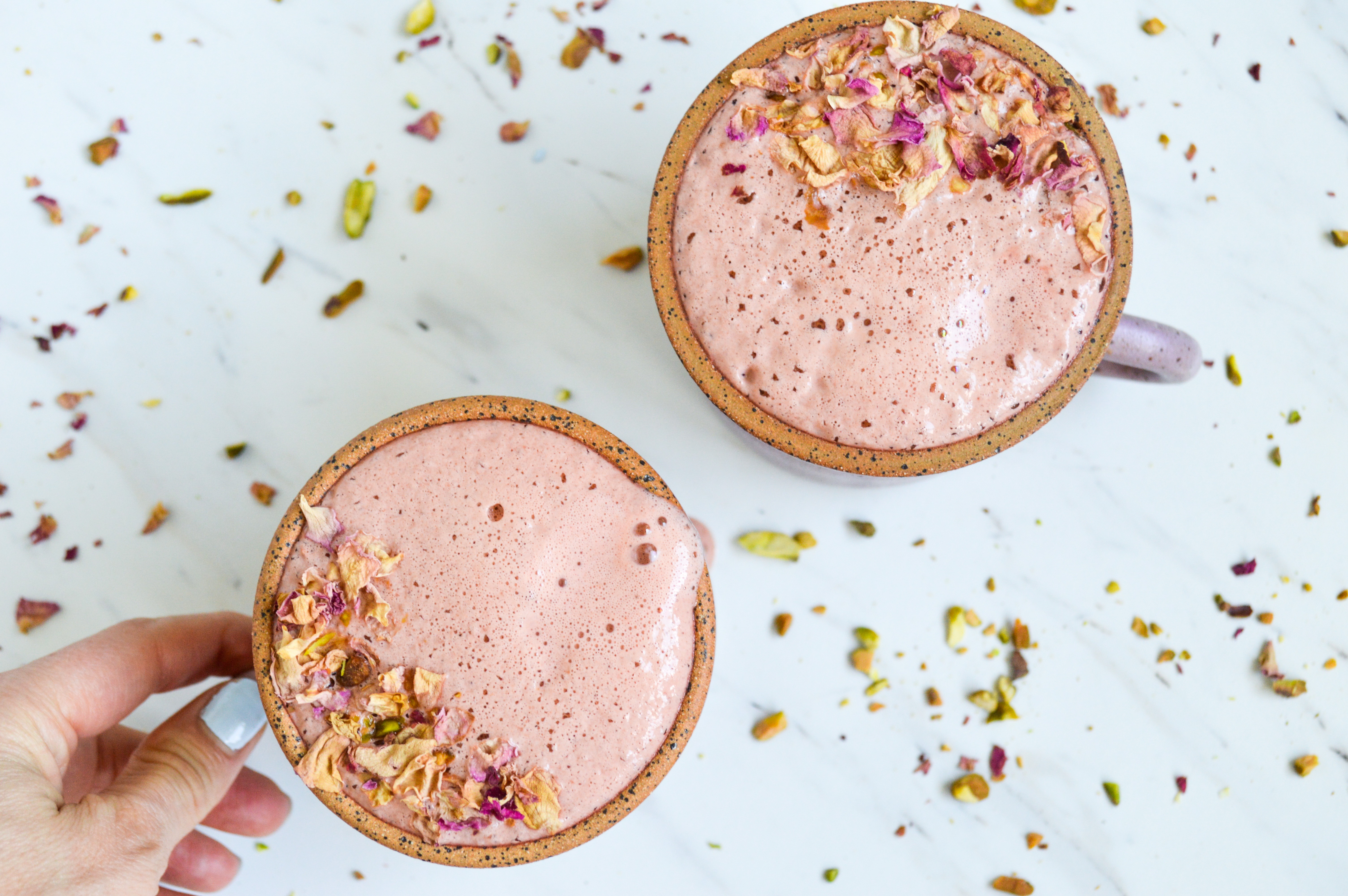
If you loved that...
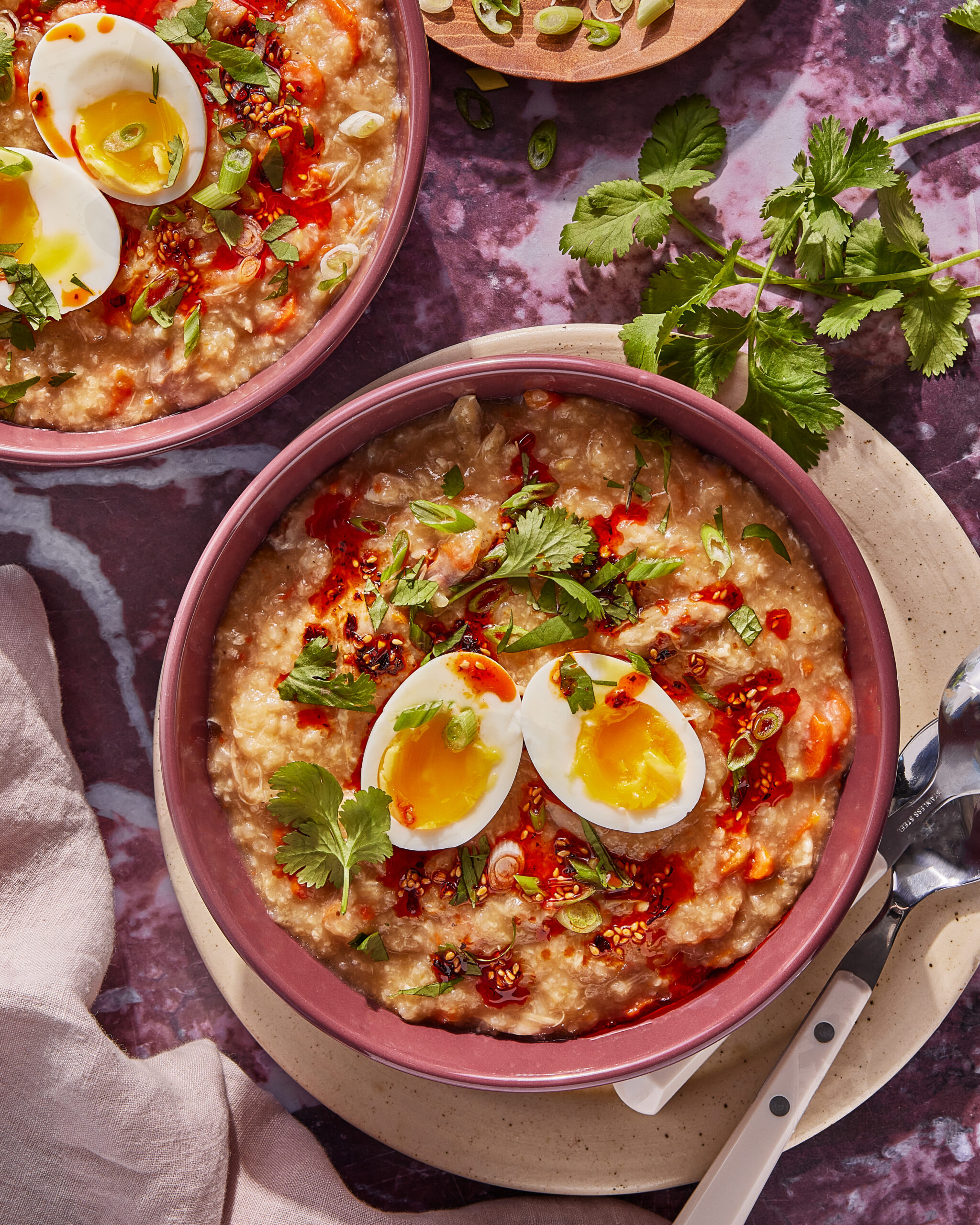
01.

02.
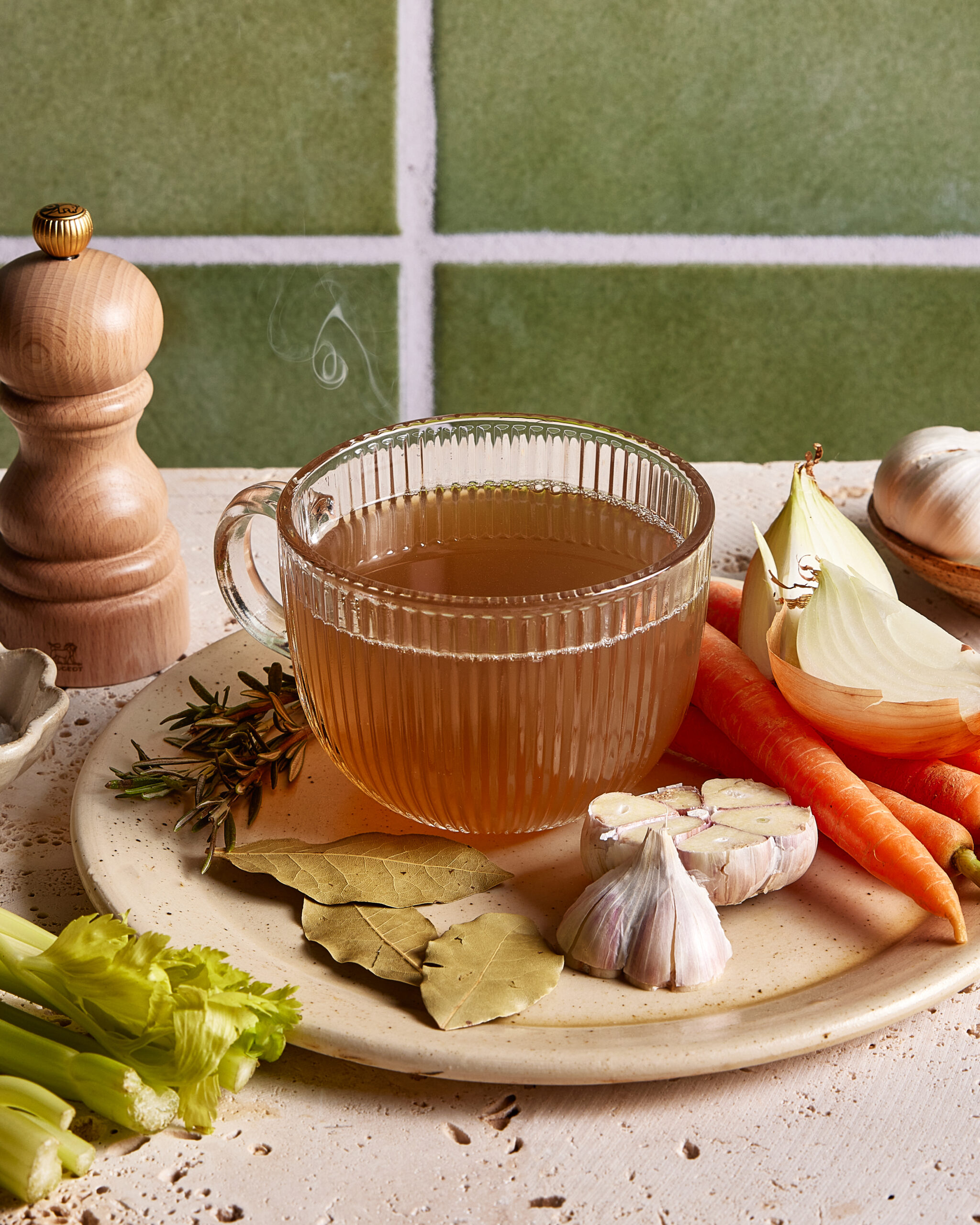
03.
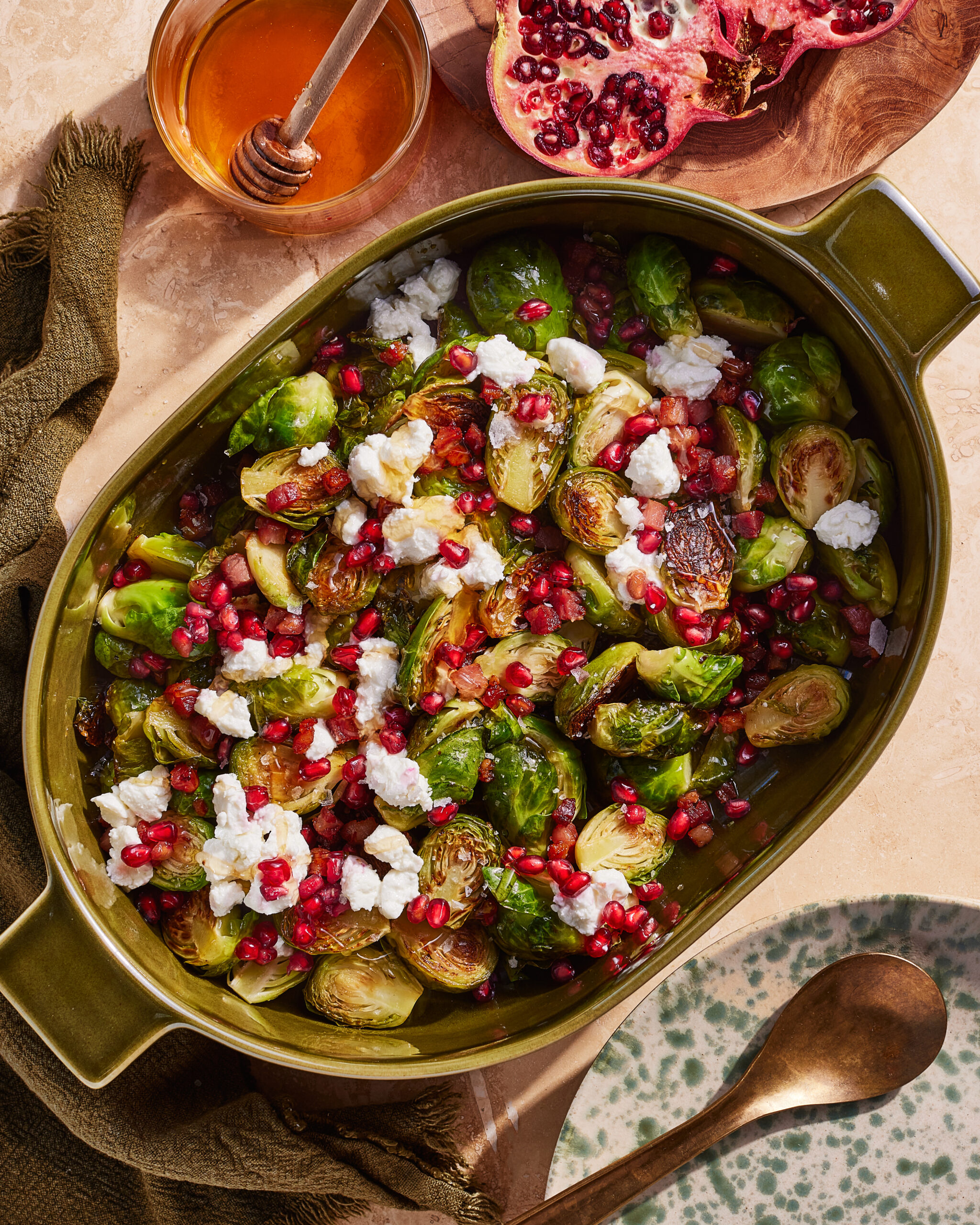
04.
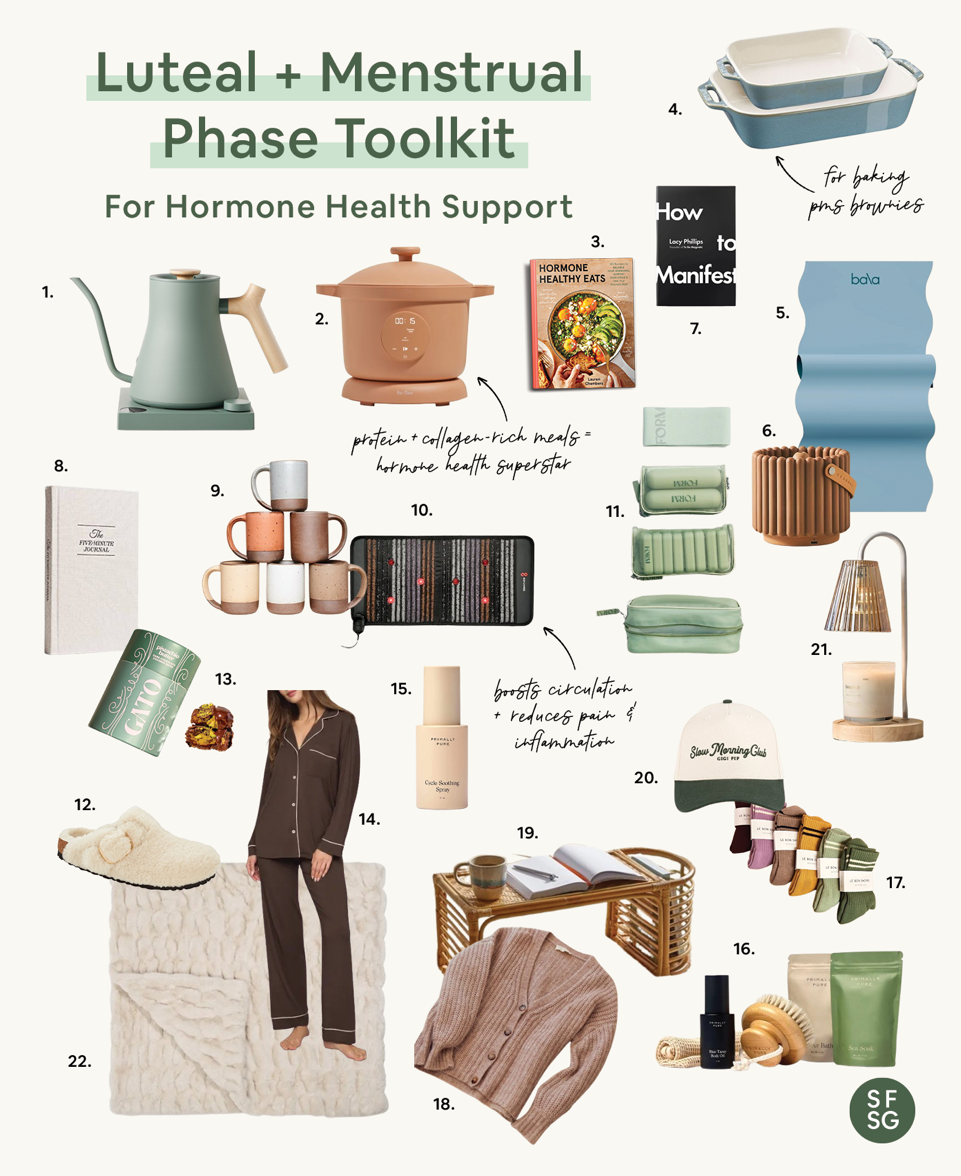
05.
hey!
Keep Browsing
Site
Keep Browsing
Site
the
about
e-books
blog
downloads
quiz
Welcome friend, I'm lauren.
I’m honored to support you on your journey to optimal hormone health + happiness. Thanks for being here babe.
